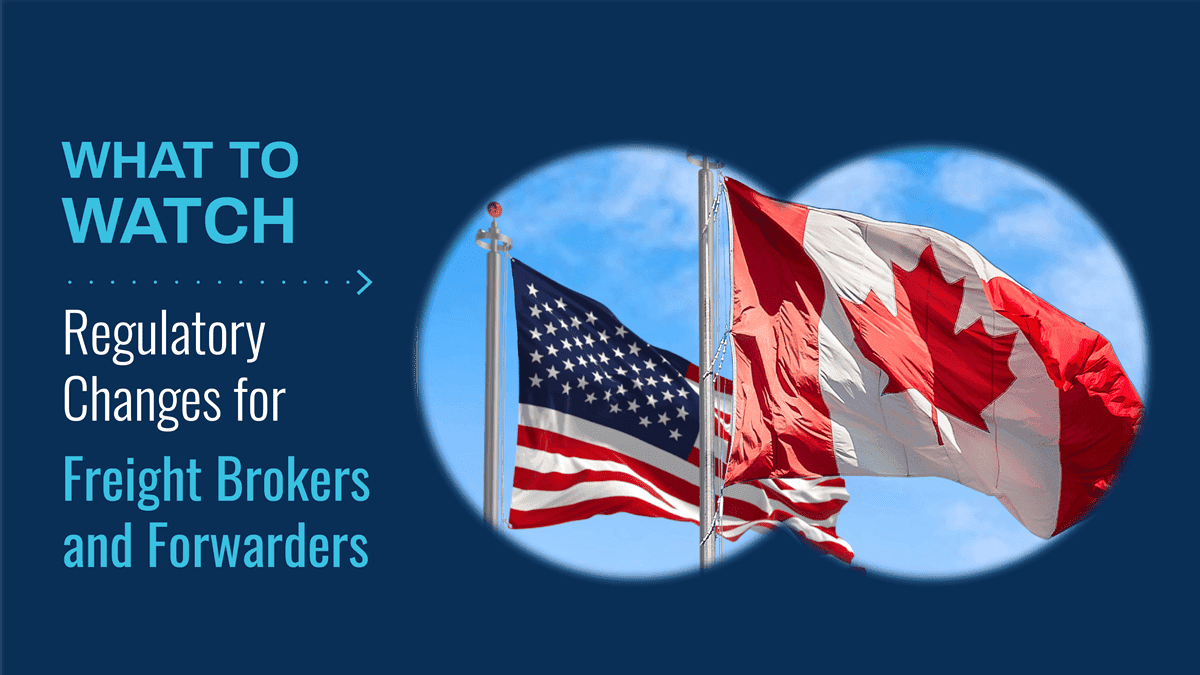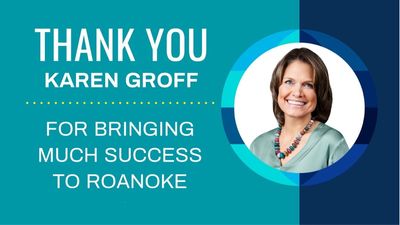April 24, 2024 | Industry Insights
What to Watch: Insurance, Regulatory Changes for Freight Brokers and Forwarders

By Glenn Patton, Managing Director, Roanoke Insurance Group Canada, Inc.
The following are several important issues regarding the insurance industry and regulatory changes that impact freight brokers and forwarders. With so many Canadian freight brokers and forwarders conducting cross-border business, U.S. regulatory changes affect the entire industry.
Nuclear verdicts in liability cases in the U.S. involving motor carriers have included freight brokers.
Nuclear verdicts against trucking companies in the U.S. have reached tens and hundreds of millions of dollars in the past decade or so. In their lawsuits, plaintiffs in accidents with motor carriers have named all parties involved in the supply chain. Freight brokers have been found vicariously liable for the actions of their motor carriers despite not being responsible for moving cargo. The Federal Aviation Administration Authorization Act (FAAAA) contains a provision barring common-law negligence claims against a freight broker based on the broker’s motor carrier selection. However, under statutory state laws, several cases have been argued where the freight broker was found liable.
For example, over a decade ago, a jury found a freight broker vicariously liable for its motor carrier’s truck-on-passenger vehicle accident, which resulted in multiple fatalities. The $23.8 million verdict was levied against the broker and its motor carrier. The jury asserted that the broker exercised excessive control over the motor carrier’s actions in providing loading instructions, rerouting drivers, and imposing fines for later deliveries, among other actions, including representing itself as the motor carrier’s partner.
A few years later, in a wrongful death case, a jury awarded $1.67 million in punitive damages against a freight broker involving its motor carrier. The jury found that the broker was responsible for the actions of its motor carrier’s negligent driver, who had fallen asleep at the wheel. He had failed to ensure that the carrier had liability insurance, breached its broker-shipper agreement, and engaged in sloppy recordkeeping.
In the wake of these and other similar cases tried under state statutory laws, the Contingent Auto Liability insurance market has been impacted, limiting availability for freight forwarders and brokers to protect against these types of losses. Many U.S. carriers stopped providing Contingent Auto Liability.
Some good news: The tide is turning.
In recent cases, however, U.S. courts have denied freight broker responsibility in motor-carrier related accidents, citing the FAAAA provision. For example, in a July 2023 case , the 7th Circuit Court of Appeals found that a liability claim against a broker was “expressly barred by the FAAAA’s preemption provision.” The freight broker’s hired motor carrier collided with a motorcycle driver, who died in the crash. The deceased’s wife asserted a negligent hiring claim against the freight broker.
Although far from settling the issue of broker liability, the 7th Circuit and other appellate decisions provide an opportunity for freight brokers to argue cases in a more friendly environment under the FAAAA’s preemption provision and not state tort law. They also offer an opportunity for insurance companies to reenter the Contingent Auto Liability insurance market. Insurance companies will start fighting cases and using the appellate court decisions as arguments instead of settling.
Impact on Canadian Brokers
While Canada imposes a cap on liability limits and does not experience the type of nuclear verdicts awarded in the U.S., many Canadian freight brokers conduct cross-border businesses and could have vicarious liability exposure. Insurers in Canada are now reevaluating Hired Auto coverage (the equivalent of Contingent Auto Liability), as they could be impacted by cases in the U.S.
We are monitoring various cases as they move through the courts and how the insurance market will respond in the U.S. and Canada.
Double brokering continues to be a massive issue in the insurance industry.
According to FreightWaves, “fraudulent double brokering has emerged as one of freight transportation’s most pervasive problems in this freight cycle. By one estimate, it affects $500 million to $700 million in freight annually.”
Double brokering involves a motor carrier re-brokering a load to another carrier without the knowledge or approval of the freight broker or shipper. This disrupts operations and exposes the industry to considerable financial and liability concerns.
On the insurance side, many Contingent Cargo and all-risk Cargo policies exclude coverage if the broker does not hire the motor carrier that picks up the freight. Brokers could be held liable for these losses without coverage.
A freight broker’s contractual agreement with motor carriers should include provisions precluding load transferring without the broker’s consent. Additionally, we recommend that brokers ask their shippers to match MC numbers and check VIN numbers of the trucks to verify the carrier.
Insurers are being more specific about motor carrier vetting procedures.
Insurance companies have become increasingly stringent in requiring information on freight brokers’ motor carrier vetting procedures. Insurers want details about how brokers vet their carriers and are requesting copies of broker-carrier agreements to review carrier responsibility for specific incidents.
Some insurers will factor in premium discounts for brokers that use a third-party company to vet their motor carriers.
Insurers want to see a distinct separation between a freight forwarder’s asset- and non-asset-based sides of the company.
Many freight forwarders own trucks (asset-based) and have a logistics service division (non-asset). They operate their trucks and act as freight forwarders. Because of the liability imposed on motor carriers in the U.S. for cargo damage or loss, insurers want to see a clear delineation between the two assets, with different entity names and separate websites, etc.
There have been claims against freight forwarders for cargo losses for the full value because both company entities fall under the same name.
Freight brokers are increasingly offering all-risk Cargo insurance to clients in lieu of relying on motor carrier coverage for losses.
Offering clients all-risk Cargo insurance helps freight brokers expedite the claims process and retain their customers. While brokers carry Contingent Cargo insurance for cases where the motor carrier’s insurance does not pay for cargo loss, this can create bottlenecks and headaches in the claim process. With Cargo insurance, a shipper will get paid for a covered loss within a reliable time frame and at full value. Most insurance providers offer real-time quotes.
The U.S. Federal Motor Carrier Safety Administration (FMCSA) recently published its final rule for a freight broker/forwarder’s financial liability.
The new rule states that freight brokers and forwarders must maintain a $75,000 surety bond or trust in readily available assets. It also further defines their responsibility, what is and isn’t acceptable, and when the FMCSA can revoke authority when proper financial security is not in place. Readily available assets are limited to cash, irrevocable letters of credit issued by federally insured depository institutions, and U.S. Treasury Bonds.
The FMCSA has initiated a proposed rulemaking, Transparency in Property Carrier Broker Transactions, in the face of trucker protests over alleged freight broker overcharges.
In response to truckers’ demands, under the FMCSA’s proposed rulemaking, Transparency in Property Carrier Broker Transactions, brokers must disclose transaction information to motor carriers, including the name of the shipper and shipping charges, within 48 hours of completing contractual services with the shipper.
The Transportation Intermediaries Association (TIA) has petitioned against the rule; however, the FMCSA appears set on adopting it. At risk is confidential information, including the shipper’s proprietary information, which could be disclosed to competitors. Many brokers have NDAs with their customers that preclude them from passing information to third parties. In addition, motor carriers could solicit shippers directly.
We encourage the broker community, including in Canada, to contact the U.S. Congress to discuss the importance of its role in the logistics industry and the impact this rulemaking would have on it. A notice of proposed rulemaking is set for October 31, 2024.
For a complimentary Cross-Border Risk Assessment, contact us today.
Disclaimer: This information is provided as a public service and for discussion of the subject in general. It is not to be construed as legal advice. Readers are urged to seek professional or legal guidance from appropriate parties on all matters mentioned herein.













